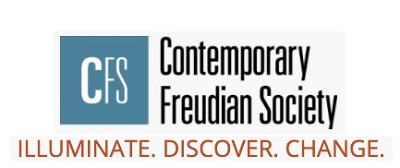Series: Psychoanalytic Perspectives on Clinical Practice During Pandemic
Substance Abuse and Sex Addictions
in the Time of COVID-19
Friday June 19, 2020 2:30-4:30pm EST
via Zoom
Joseph Collins, DO
Psychoanalyst
Medical Director, Saint Luke Institute Residential Treatment Program
Clark Hudak, PhD
Psychoanalyst
Founder and CEO of Recovery Network
Webinar Overview
This webinar is designed to assist analysts, therapists, and other clinicians working with people suffering from addiction. An overview of relevant theoretical perspectives of addiction will be presented, followed by a discussion of the COVID crisis and its impact on addiction treatment. Elements of trauma theory will be considered as it relates to addiction, the COVID pandemic, and the impact on the analytic dyad. The presenters have extensive experience on these subject matters, and they will be able to draw parallels between various addictive states with in-depth clinical examples, including process material. Reference will be made to the works of Bass, Brenner, Khantzian, Krystal, Stoller, and Wurmser.
Joseph Collins, Jr., DO is a psychiatrist and psychoanalyst who has a private practice in Bethesda, MD. He is a Training and Supervising Analyst with The Contemporary Freudian Society, an Assistant Clinical Professor of Psychiatry at the Georgetown University School of Medicine and is the Director of Medical Services at St. Luke Institute in Silver Spring, MD, a residential psychiatric treatment facility for Catholic clergy. He has extensive experience in the treatment of men with sexual issues.
Clark J. Hudak, Jr., PhD is a psychoanalyst and clinical social worker with 40 years in private practice, and with a specialization in the field of addictions. He is a graduate of the University of Maryland School of Social Work (UMAB), where he received his MSW & PhD degrees. He has been an Adjunct Faculty at UMAB and is currently an instructor and Faculty Advisor for CAPA (China American Psychoanalytic Alliance). He has expertise in treating sexual disorders, pathological gambling, and substance abuse, and has presented seminars on these subjects in the Baltimore-Washington area. He has directed several addiction treatment programs, and is the founder and CEO of Recovery Network, which is a comprehensive behavioral health clinic in Baltimore, Md. His experience with treating addictive behavior is considerable, and he has parlayed his training in psychoanalysis into an in-depth understanding of addictive disorders.
Program
1. Dr. Hudak will discuss addictions and perversions in the context of psychoanalytic theories of trauma and addiction, drawing particularly on the work of Leon Wurmser and Edward Khantzian, both of whom have contributed greatly to a psychoanalytic understanding of addictions and their perverse nature.
2. Dr. Collins, drawing on the theoretical work of Alan Bass on disavowal in perversion as well as Robert Stoller’s understanding of the role of hostility in perversion, will present a case, with clinical material, illustrating alterations in the addictive and perverse behavior of a patient responding to the shift from in-person to video-based treatment due to the restrictions related to the Covid-19 outbreak.
3. Group discussion of the topic and the clinical material.
Learning Objectives:
After attending this program, participants will be able to:
1. Describe the underlying dynamics of addictive behaviors in general, and how they have reemerged as a result of the COVID crisis.
2. Discuss the psychological defenses of addictions that have been exacerbated as a result of the COVID pandemic.
3. Explain the impact of teletherapy and the COVID-19 pandemic (as trauma) on the transference/
Important Disclosure Information:
None of the planners and presenters of this program have any relevant financial relationships to disclose.
Who Should Attend:
This program is designed for professionals and graduate students in the mental health field.
Program Fee:
$ 60 General
$ 50 CFS Members
$ 25 Students and Candidates
No refunds
REGISTER ONLINE: https://
If you have any questions regarding the program, please contact Michael Krass, PhD at mlkrass@aol.com or 703-909-5118.
Continuing Education Credits:
Physicians: This activity has been planned and implemented in accordance with the Essential Areas and policies of the Accreditation Council for Continuing Medical Education (ACCME) through the joint providership of MedChi, The Maryland State Medical Society, and The Contemporary Freudian Society. MedChi is accredited by the ACCME to provide continuing medical education for physicians. MedChi designates this live educational activity for a maximum of 2 AMA PRA Category 1 CreditsTM. Physicians should claim only the credit commensurate with the extent of their participation in the activity. Partial participation in this program is contra-indicated. The Contemporary Freudian Society is authorized by MedChi to grant CMEs for this program. Upon completion of this program and online survey, participants will be granted certificates for 2 AMA PRA Category 1 credits.
Psychologists: The Contemporary Freudian Society is approved by the American Psychological Association to sponsor continuing education for psychologists. The Contemporary Freudian Society maintains responsibility for this program and its content. CE credits are granted to participants with documented attendance of the entire program and completed evaluation form. It is the responsibility of the participants seeking CE credits to comply with these requirements. Upon completion of this program and evaluation form, participants will be granted 2 CE credits.
Social Workers: The Social Work Boards of the District of Columbia, Maryland and Virginia will grant continuing education credits to social workers attending a program offered by an APA authorized sponsor, provided they comply with the requirements stated above for Psychologists.
Professional Counselors: The Boards of Professional Counselors in the District of Columbia and Virginia will accept continuing education credits for Counselors attending a program offered by an APA-authorized sponsor, provided they comply with the requirements stated above for psychologists. The Board of Professional Counselors in Maryland will accept CE credits granted by a program that is recognized by the Maryland Board of Examiners for Psychologists and Social Workers.

